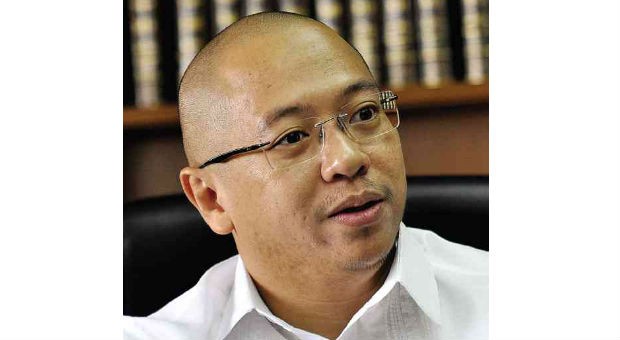Senator Leila De Lima, through her lawyers, admitted before the Supreme Court that the act of signing her petition “was not done face to face” with a notary public.
Earlier, Solicitor General Jose Calida accused De Lima of falsifying the jurat attached to the verification and certification against forum shopping of her petition when she stated that it was signed before a notary public.
READ: Notary public in De Lima petition ‘imaginary’—SolGen
Calida said there was no record from the logbook of the detention facility inside the Philippine National Police (PNP) headquarters in Camp Crame that notary public Maria Cecile Tresvalles-Cabalo visited De Lima on the date she said the petition was signed.
But the senator’s camp said that while the signing of the petition was not done face to face, “the signature was presented to her immediately after the act of signing, with the notary having the knowledge that petitioner was signing the petition.”
“Despite these certainties, the notary public still took the additional step to verify the signature of the petitioner (De Lima) by asking for her proof of identification from her staffers,” De Lima said through counsel, former Solicitor General Florin Hilbay who also said during the oral argument that Cabalo met De Lima at the PNP-Criminal Investigation and Detection Group (PNP-CIDG), not at the detention facility.
Calida said under the 2004 Rules on Notarial Practice specifically its Section 6, a person must personally appear before the notary public to personally subscribe to her document.
Calida said that for not complying with the rules, De Lima’s petition should be considered “unsigned and without legal effect” thus should be dismissed.
But Hilbay argued that verification does not affect the validity of the pleading.
Citing the case of Uy v. Landbank, Hilbay said “the Supreme Court ruled that the requirement regarding verification of a pleading is formal, not jurisdictional. Such requirement is simply a condition affecting the form of pleading, the non-compliance of which does not necessarily render the pleading fatally defective.”
Hilbay added that in the case of Shipside v. CA, the high court ruled that it may act on a pleading although it is not verified if there are attending circumstances to make sure that justice may be served to the parties.
“By all accounts and setting aside strict scrutiny of legal nitpicking and hairsplitting, this is full compliance with the law, because the objective of the law in ascertaining the signature of the petitioner and the satisfaction of the notary public that the signature belongs to petitioner and that petitioner was the one who signed the petition have been complied with.”
“With due respect, petitioner believes that the Honorable Court has more substantive and relevant issues to resolve than be bothered with such narrow, formalistic pettiness,” Hilbay added. IDL


